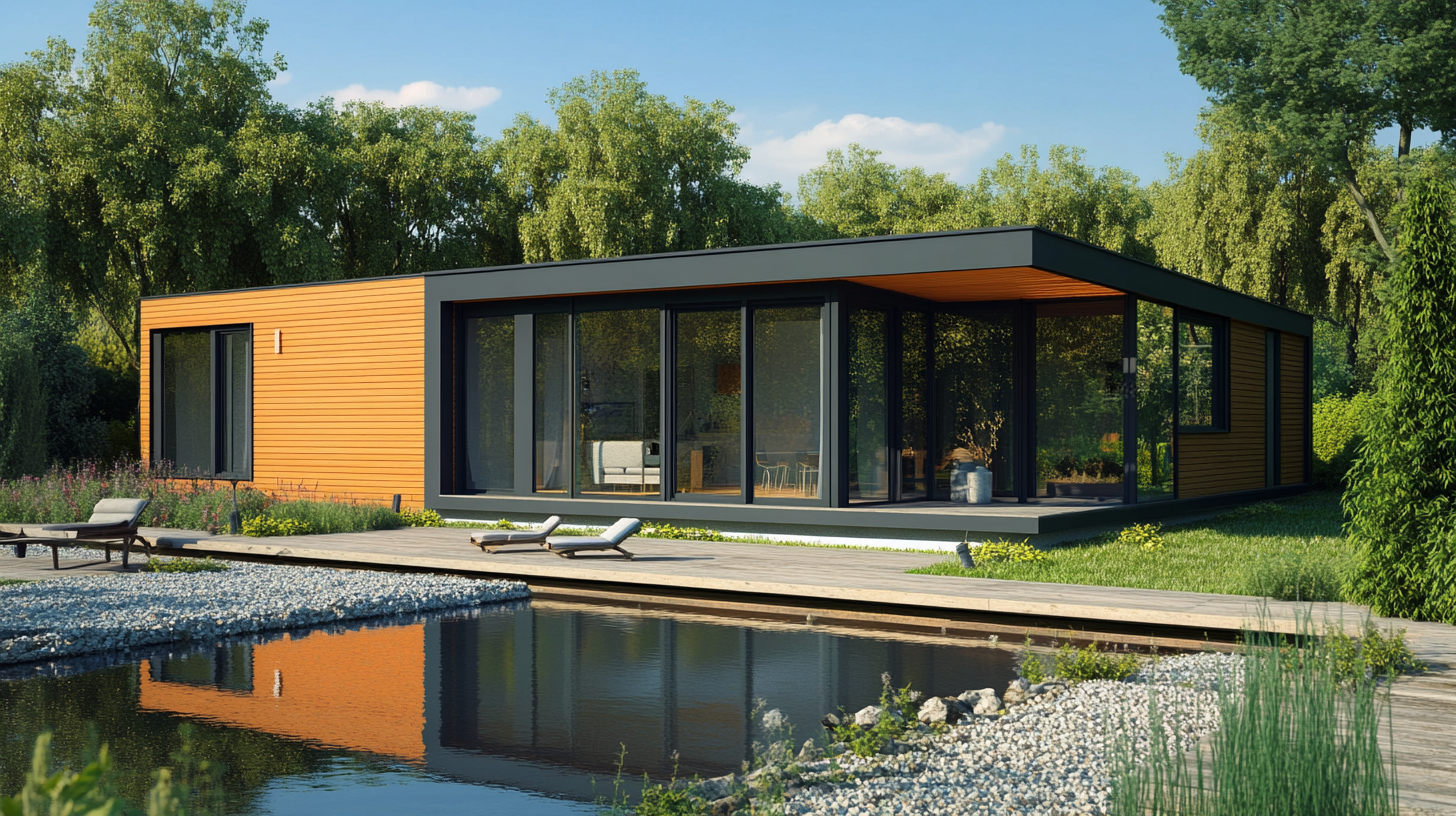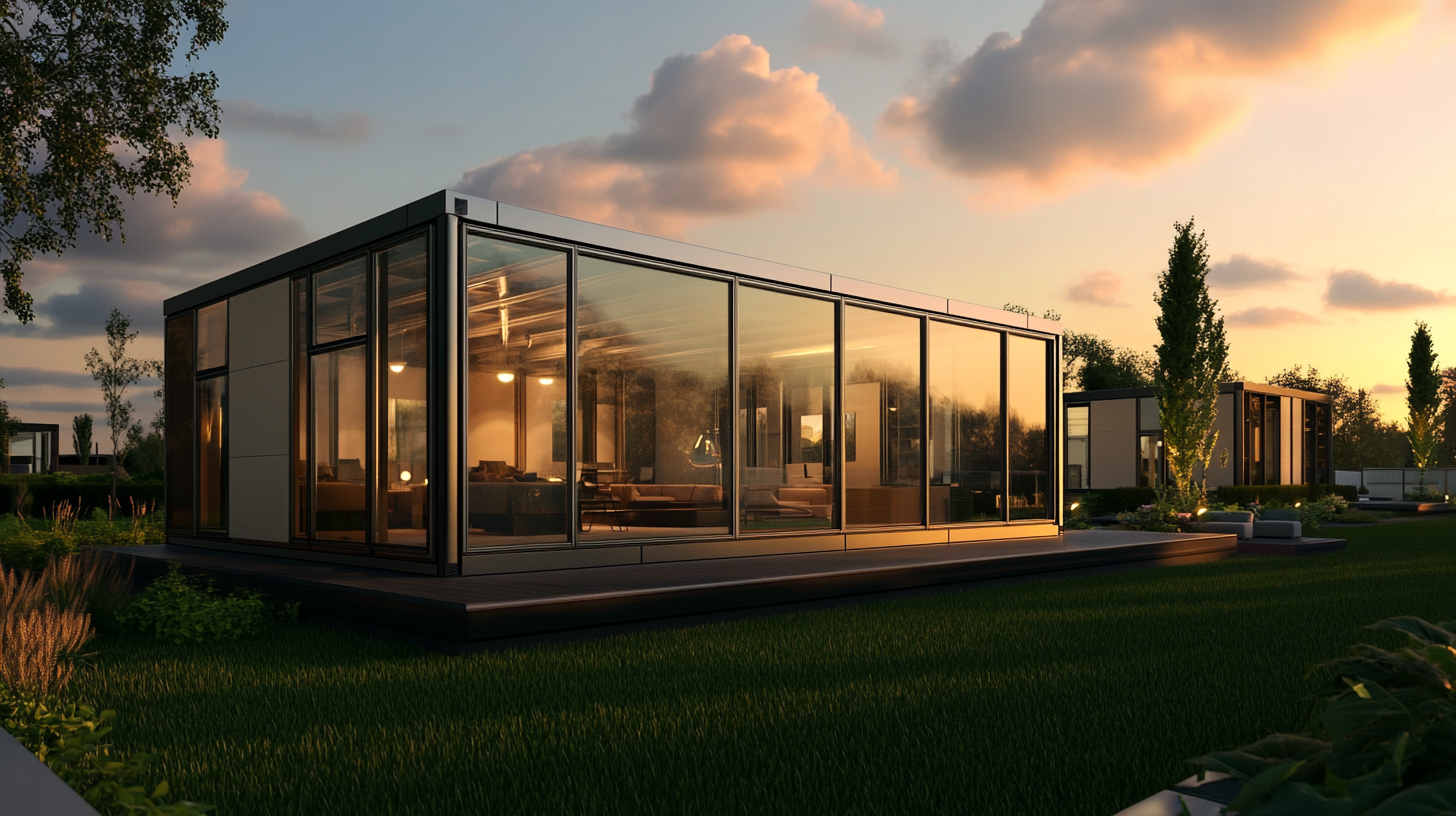
News
Navigating the Challenges: Common Issues with Best Modular Homes and How to Overcome Them
As the modular homes industry continues to evolve, it faces a range of challenges that require innovative solutions and strategies. According to a recent report by the Modular Building Institute, the modular construction market is projected to reach $157 billion by 2025, driven by increasing demand for efficient housing solutions and sustainable building practices. However, the path to success is not without obstacles. Common issues such as zoning regulations, financing difficulties, and consumer misconceptions can hinder the growth of modular homes. Understanding these challenges and exploring viable alternatives is crucial for stakeholders looking to capitalize on this burgeoning market. In this blog, we will discuss the key challenges faced by the modular homes sector and provide actionable insights on how to navigate them effectively.

Identifying Reliable Suppliers for Modular Homes: Key Factors to Consider
When embarking on the journey of acquiring a modular home, selecting a reliable supplier is critical to ensure a positive experience and a quality product. According to a report by the Modular Building Institute, modular construction is projected to grow by 20% annually, reflecting a rising demand for this innovative housing solution. However, with an expanding market, the number of suppliers can be overwhelming, making it crucial to evaluate key factors before making a commitment.
One of the most important considerations is the supplier's reputation. Researching customer reviews and industry ratings can help gauge a company's reliability. The Better Business Bureau reports that homes from accredited companies tend to have fewer issues and higher satisfaction rates. Additionally, verify that your supplier is licensed and insured to protect your investment against unforeseen complications.
**Tips:** When evaluating suppliers, look for those who offer a transparent process, including detailed contracts and clear timelines. This can prevent many common issues associated with modular homes. Moreover, consider asking for referrals from previous clients to gain insights into their experiences. Engaging with suppliers that provide comprehensive warranties can also add a layer of security to your purchase, ensuring you are covered for any potential defects.
Navigating the Challenges: Common Issues with Best Modular Homes
Common Challenges in Modular Home Construction and How to Address Them
When it comes to modular home construction, several common challenges can arise, often stemming from design limitations, site preparation issues, and regulatory hurdles. According to a report by the Modular Building Institute, nearly 30% of modular projects experience delays due to site readiness. Proper preparation is crucial; potential homeowners should ensure that the land is adequately graded and utilities are accessible prior to installation. This proactive approach can significantly mitigate the risk of costly delays.

Another frequent challenge involves financing modular homes. A study by the National Association of Home Builders reveals that approximately 25% of potential buyers encounter difficulties securing loans specifically for modular construction. To address this, it is essential for buyers to work closely with lenders familiar with modular building processes and to explore options such as FHA Title I loans, which can facilitate financing. By understanding the unique aspects of modular home financing, buyers can better navigate the complexities and move forward confidently with their projects.
Top Strategies for Ensuring Quality in Modular Home Designs
When it comes to modular home designs, ensuring quality can be a significant challenge. One of the primary strategies to navigate these issues is to adopt modern methods of construction (MMC). These innovative techniques streamline the building process, making it not only more efficient but also more effective than traditional methods. By utilizing modular building approaches, home builders can potentially reduce project timelines by 20 to 50 percent. This acceleration allows for quicker turnarounds without compromising on quality, ensuring that homes are built to last.
To further enhance the quality of modular designs, builders should prioritize sustainable materials and adaptable building practices. Recent projects have demonstrated that modular techniques can provide affordable, resilient housing solutions in areas prone to climate challenges, such as wildfires. By focusing on modular construction as a means to address both housing and environmental crises, stakeholders can foster durable and aesthetically pleasing homes that meet the needs of modern living while being considerate of ecological impacts.
Navigating Permitting and Zoning Issues in Modular Home Projects
Navigating permitting and zoning issues is crucial for anyone embarking on a modular home project. Local regulations can often seem daunting, so understanding the specific requirements in your area is the first step. Research your local zoning laws to determine the types of homes allowed and the minimum lot sizes. This information will help ensure your modular home meets all legal criteria, preventing costly setbacks later in the process.
Tips: Consult with local officials to clarify any ambiguous guidelines. It can also be beneficial to connect with a local modular home builder, as they typically have extensive experience navigating these requirements and can provide valuable insights into the permitting process.
Another common issue is understanding the timeframe associated with permits. Delays can occur due to incomplete applications or missing documents. To avoid this, create a detailed checklist of all required forms and supporting documents before submission.
Tips: Consider utilizing online resources or community forums to see common pitfalls others have encountered. Keeping lines of communication open with your local permitting office can also facilitate quicker responses and help you stay informed throughout the process.
Tips for Effective Communication with Your Modular Home Provider
 When it comes to modular homes, effective communication with your provider is paramount to navigate potential challenges. One common issue buyers face is unexpected changes in timelines or costs. It can be beneficial to establish a clear line of communication from the start. Regularly scheduled check-ins can help both parties stay on the same page and allow for any adjustments to be made promptly.
When it comes to modular homes, effective communication with your provider is paramount to navigate potential challenges. One common issue buyers face is unexpected changes in timelines or costs. It can be beneficial to establish a clear line of communication from the start. Regularly scheduled check-ins can help both parties stay on the same page and allow for any adjustments to be made promptly.
Tips for maintaining effective communication include being proactive in asking questions and expressing concerns. Don’t hesitate to request updates or clarifications about the process. Providing feedback can help prevent misunderstandings before they escalate. Additionally, document conversations and important decisions to reference later, ensuring everyone involved has a clear understanding of timelines and expectations.
Moreover, leveraging technology can enhance communication efficiency. Utilizing email or project management tools allows for real-time updates and keeps a record of discussions. This approach not only prevents information from being lost but also ensures that both you and your modular home provider can track progress and address any issues as they arise. By taking these steps, you can help create a smoother experience in your modular home journey.
